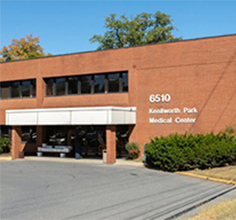
Lupus, a chronic autoimmune inflammatory illness, is a condition where the body's immune system mistakenly attacks its own healthy tissues and organs. This relentless battle within the body can affect various parts, including joints, skin, kidneys, blood cells, the brain, heart, and lungs.
While there is no known cure for Lupus, there are effective ways to manage its symptoms and improve your quality of life. In this article brought to you by Southern Maryland Medical Group, we look into the causes, symptoms, and treatment options for Lupus, and we share tips on exercising with this challenging condition.
If you are looking for a primary care doctors in the area, then call Southern Maryland Medical Group to schedule an appointment with a licensed primary care physician.
Lupus is a complex disease that can manifest in a variety of ways. It can present a wide range of symptoms, including fatigue, joint pain, skin rashes, fever, and sensitivity to sunlight. These symptoms can be mild or severe and can come and go unpredictably, making it a challenging condition to manage.
The exact cause of Lupus remains unknown, but it is believed to be a combination of genetic, environmental, and hormonal factors. It tends to affect women more frequently than men, and often strikes during childbearing years.
Though there is no known cure for it, Lupus treatment typically involves a combination of medications, including anti-inflammatory drugs, immunosuppressants, and lifestyle modifications. One such critical lifestyle modification is regular exercise.
Contrary to popular belief, engaging in physical activity can be beneficial for individuals with Lupus.
For one, exercise can help alleviate joint pain and stiffness, which are common Lupus symptoms. It promotes the release of endorphins, natural painkillers produced by the body. Further, Lupus can weaken muscles over time. By incorporating strength training exercises into your routine, you can combat muscle loss and improve overall body strength.
The psychological benefits of exercise cannot be understated either. Living with Lupus can take a toll on mental health. Regular exercise has been shown to reduce stress, anxiety, and depression while boosting mood and promoting a sense of well-being.
Before starting any exercise program, it is crucial to consult with your primary care physician, preferably one experienced in treating Lupus. With that said, here are some guidelines to follow when incorporating exercise into your daily routine:
While Lupus presents numerous challenges, incorporating regular exercise into your routine can be a powerful tool for managing its symptoms and improving your overall quality of life. Remember, you are not alone in this journey, and the licensed primary care doctors at Southern Maryland Medical Group are here to provide guidance. Contact us today to schedule a convenient appointment. We look forward to hearing from you.
Southern Maryland Medical Group has 3 convenient locations to provide professional medical care services in the Southern Maryland area. Call or schedule an appointment with one of our locations to get medical care help.

5801 Allentown Road, Suite 400 Camp Spring, MD 20746
Phone: 301-868- 0150
Billing Inquiries: 301-552-1270
Fax: 301-868-0243

7500 Greenway Center, Dr #1200 Greenbelt, MD 20770
Phone: 301-486-7580
Billing Inquiries: 301-552-1270
Fax: 301-486-7581

6510 Kenilworth Ave, Ste 1400, Riverdale MD 20737
Phone: 301-618-0771
Billing Inquiries: 301-552-1270
Fax: 301-618-0772